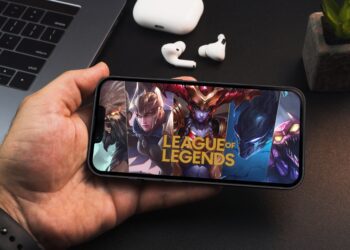The Olympics could teach us a thing or two about the world of business.
Although the games themselves, the hunger for victory, and the passion have not changed, the Olympics are not what they used to be.


Today we see competitors push themselves to the limit while data and technology transform the way athletes train and prepare to reach the summit of sporting success.
As the 2018 Winter Olympics in Pyeongchang, South Korea took place, it was impossible not to become curious about the lessons data and technological innovation could teach the world of business and management.
Anant Gupta, former President and Chief Executive Officer for HCL Technologies, recalls 4 key points he learned from the 2016 Rio Olympics regarding business and sports in his collaboration with the World Economic Forum (WEF) blog. These were:
- Embrace the power of data
- Build the right ecosystem
- Prepare and know how to pivot
- Cultivate empathy
[ihc-hide-content ihc_mb_type=”show” ihc_mb_who=”3,4,5,6″ ihc_mb_template=”3″ ]
Data, technology and key point involvement among Olympic athletes
The CEO noted that as data is involved in every aspect of performance through sensors, wearables, heart rate monitors and more, informed decisions regarding competitor´s performance are taken easily.
For example, Gupta continues, rowing teams have analyzed patterns to determine training strategies. In boxing, the British team is said to have used data analytics to understand their own performance as well as opponents’ tactics and weaknesses.
The author also spoke about the importance of environment and coaching, both of which regularly set the tone for the competitors´ comfort.
He explains that at the 2016 Rio Olympic Games, the Canadian side invested in bringing alongside their athletes a team of psychologists and nutritionists who teamed up with technology to understand the routines and habits the athletes adopt, from sleep to water intake to nutrition and training.
This also allows teams to monitor the well-being and overall satisfaction of their team as they aim for near-perfect performances.
Pivot and empathy, vital for winning


When speaking on the possibility of pivot, Anant Gupta says the ability of fast reaction and adaptation play a fundamental part in the success of champions, as beyond technology, adapting to immediate change with the correct reaction is a lesson that is invaluable for all business leaders.
Finally, when explaining empathy, Gupta mentioned the Rio 2016 competition showed one of the best demonstrations of empathy as a team of refugees joined the sports men and women as they appeared for the first time before an audience.
Also, there was the case of Yusra Mardini, the Syrian swimmer fleeing civil war, who swam with her sister for nearly 4 hours in the Aegean Sea to help guide a stricken dinghy from the Turkish coast to the Greek island of Lesbos.
This, Gupta agrees, showcased an important lesson to business leaders who obsess about performance single-mindedly.
Click here to read on the technological innovations that were featured on the Pyeongchang 2018 games vía The Guardian.












